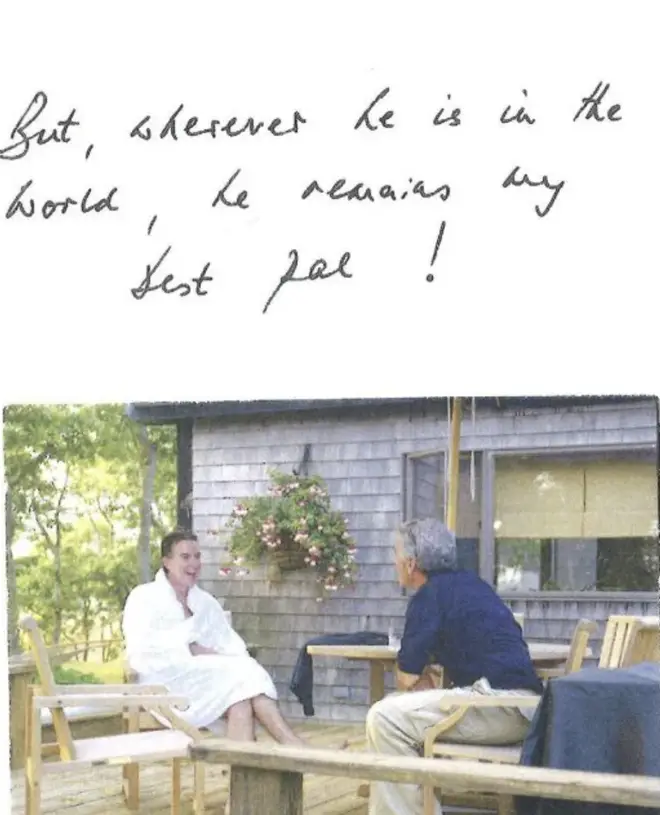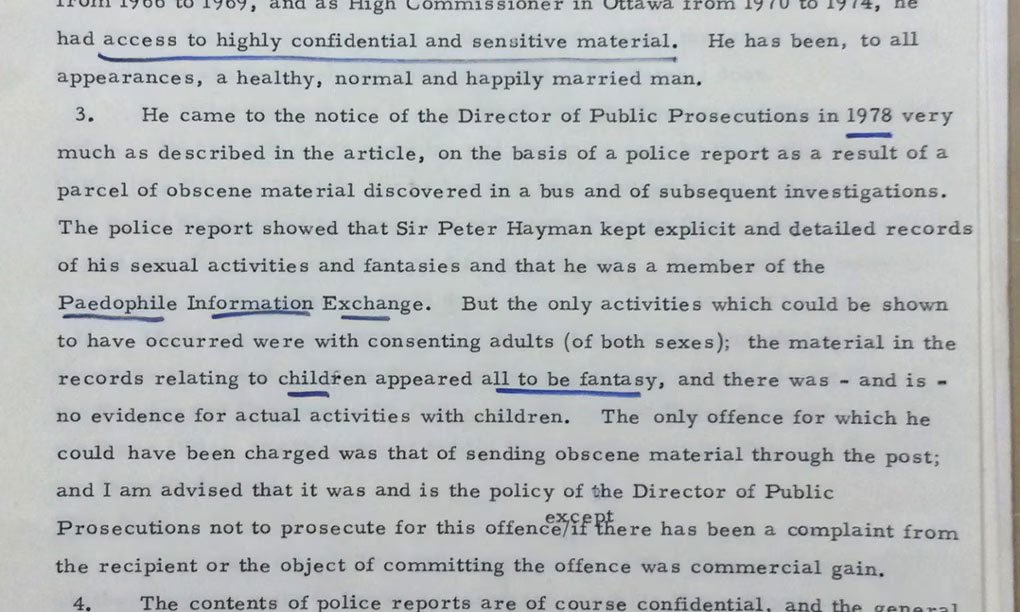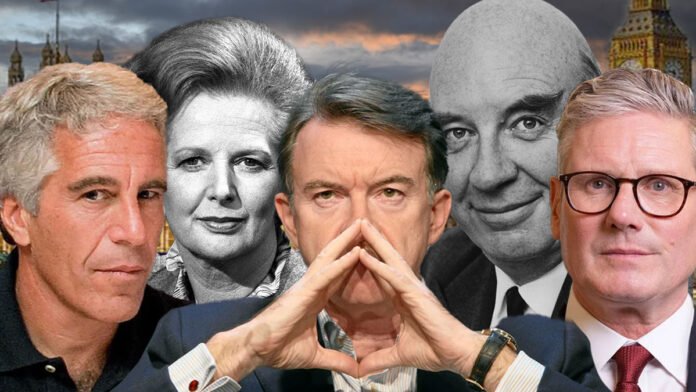From “Fuck Off” to Fired: The Unravelling of Peter Mandelson in a System of Secrecy That Protects Its Own
The debate over Peter Mandelson’s appointment as US ambassador came to a head in the Commons today. What unfolded was not just another Westminster row but a moment that cut to the core of Britain’s political decay: a Prime Minister who has left the country vulnerable, its most important diplomatic post compromised, and his own moral compass in tatters.
The fact is stark: Keir Starmer knowingly placed a man with five years’ worth of incriminating correspondence with convicted paedophile Jeffrey Epstein into one of the most sensitive roles in government. The potential for blackmail obvious. The insult to public decency, unforgivable.
Stephen Flynn, the SNP’s leader at Westminster, captured the gravity of the moment in his speech today. He urged the public not just to listen to his words but to look at the faces of Labour MPs as the debate opened, “glum, angry, serious,” knowing exactly what was at stake. Flynn skewered the absurdity of cabinet ministers sent out to defend the indefensible, forced to tell the country that Mandelson possessed “singular qualities” that made him uniquely fit for the job.
“What a pitiful state to find ourselves in,” Flynn declared. And he was right. Starmer’s decision to back Mandelson, even after the 2008 conviction that should have ended any association, is not just bad judgment, it is proof that political loyalty to the Blairite old guard outweighs basic standards of decency.
Flynn reminded the House of Mandelson’s contempt when pressed earlier this year on his ties to Epstein, telling an FT journalist to “fuck off,” dismissing it as an “obsession.” Well, as Flynn put it: “Guess what, it’s our obsession now.”
The central scandal remains clear. Mandelson maintained a friendship with a convicted sex offender, even offering him advice and support while victims of child abuse were silenced. And Starmer chose to elevate him. In doing so, the Prime Minister sent a chilling message: that power and connections matter more than the integrity of public office.
Flynn’s closing words rang with the outrage many outside Westminster feel: “What has happened to the moral compass of this place? How can any victim of child sex abuse have confidence in the structures we put in place when the Prime Minister thought it fitting for Epstein’s best friend to hold the highest diplomatic office in America?”
Mandelson, Epstein, Starmer and the Trilateral Connection.

The scandal is bigger than Mandelson’s personal disgrace. It raises the question of why he was protected, why warnings were ignored, and why a man whose emails to Epstein included encouragement during his 2008 trial was ever considered fit to represent Britain on the world stage.
The answer lies in Mandelson’s networks, the same networks that have shielded him through every scandal of his career. He is not merely a political fixer or Blairite relic. He is a member of the Trilateral Commission, the elite body co-founded by David Rockefeller in 1973 to bring together political, corporate, and financial power in the West. Until his death, Jeffrey Epstein was also a Trilateral member. That is not a coincidence. The Commission thrives on precisely these kinds of relationships: discreet, supranational, insulated from democratic scrutiny, where scandal is an inconvenience to be managed rather than an obstacle to power.
Epstein’s presence in these circles, alongside Mandelson and, indeed, Starmer himself, before rising to the position of British Prime Minister, shows how porous the boundary is between politics, money, and influence. These are not separate worlds. They are one interconnected system, and Mandelson has been a key node within it for decades.

Labour peer Maurice Glasman has now revealed that he was “discreetly” told by Number 10 to “shut up” after raising concerns about Mandelson’s appointment. Glasman, founder of Blue Labour and no stranger to political controversy himself, says he was shown photographs of Mandelson celebrating Epstein’s birthday while in the United States. He reported his concerns to Downing Street, only to be quietly instructed to keep silent.
This is damning. It proves that Mandelson’s proximity to Epstein was not some murky secret suddenly unearthed by journalists. It was known, discussed, and actively suppressed at the very heart of government. In Glasman’s own words:
“It was not out of the clear blue sky, was it?”
Starmer’s defence, that Mandelson went through “due process” and that “had I known then what I know now, I’d never have appointed him,” collapses under the weight of Glasman’s testimony. The Prime Minister knew enough. His officials knew enough. They chose to suppress the warnings, hoping that loyalty to Mandelson and his networks mattered more than the integrity of the office.

Flynn was right in the Commons: this is not just about Mandelson’s disgrace, but about the moral collapse of the Prime Minister himself. To knowingly appoint Epstein’s “best pal” to one of the most sensitive diplomatic posts in the world is to abandon any pretence of accountability. To then silence colleagues who raise alarms is to admit complicity.
Westminster and Whitehall is Littered with Dirty Secrets
A System of Secrecy: How Westminster Protects Its Own From Scandal…
Peter Mandelson’s messages to Jeffrey Epstein were “disturbing and sickening” and it’s “important that we get to the bottom of this”, a minister has said while insisting the PM retains confidence in the US ambassador.
Mike Tapp, the immigration minister, said he was personally disturbed the emails Mandelson sent Epstein in 2008 while he faced charges for soliciting sex from underage girls, and that they left “a bad taste in the mouth”.
And, of course, this is not without precedent. Westminster has a long and sordid history of covering up scandal and using the dark secrets of MPs and diplomats as leverage. Footage from 1995 shows former Conservative whip Tim Fortescue coolly admitting that during Edward Heath’s government, colleagues with problems – “money, drink, sex, even involving small boys” – would come to the whips’ office for help, and that help was quietly given.
The implication was obvious: loyalty could be extracted, careers managed, votes guaranteed, all because a secret was kept.
The Hayman affair drives the point home. Sir Peter Hayman, a senior diplomat later exposed as an alleged paedophile, was protected at the highest levels of government.
Thatcher herself, fully briefed on his proclivities, insisted he not be named publicly. Her own private secretary, Sir Robert Armstrong, admitted in a 1980 memo that Hayman’s behaviour was “a big security risk” yet was not disclosed to the security services. Notes and correspondence show officials preferred to obscure the truth rather than confront it.
The machinery of state was deployed not to defend the vulnerable but to protect one of its own.
Secret 1981 file naming senior diplomat as paedophile.

In a three-page document from 17 March 1981 titled Sir Peter Hayman – Background Note, unnamed legal officials explain why Hayman was not prosecuted when, three years previously, police discovered he was a member of the Paedophile Information Exchange group, who sent indecent material to others by post and had sexual fantasies about children.
The note explained Hayman had been only on the periphery of inquiries into PIE, and that there was no evidence of his having sought to approach any child for sexual purposes, or his seeking to incite others to do so, meaning he was not prosecuted. None of the other eight people involved in the correspondence was prosecuted, it added. At a subsequent Old Bailey trial involving more senior PIE members, the note adds, Hayman was referred to as a “senior civil servant”, not to protect him, but because he was not a witness and none of the defendants knew his identity.
The lesson is brutally clear: cover-up is not an aberration, it is the system. From Fortescue’s whips’ office to Thatcher’s Cabinet, from Hayman’s protection to Mandelson’s rehabilitation, the pattern is consistent. Secrets are currency, scandals are managed, and accountability is sacrificed to maintain the integrity of the political class itself.
The scandal lays bare what many have long argued: Labour under Starmer is no vehicle for democratic renewal but a client party of supranational elites, bound by the same Trilateral loyalties that link Mandelson to Epstein, Starmer to Draghi, Merz to Macron. When Mandelson fell, it was not because the system worked. It was because the scandal became too public to suppress.
The tragedy is not just that Britain’s moral compass has been lost. It is that the apparatus of state power, the Prime Minister’s office itself, was used not to uphold standards but to bury the truth. The chickens have indeed come home to roost. But the question now is not just whether Mandelson should go, he has. It is whether a Prime Minister so compromised by elite networks and so willing to protect them has any moral authority left to govern.
If you enjoyed this article please consider donating to keep this blog going.
Support Independent Journalism Today
Our unwavering dedication is to provide you with unbiased news, diverse perspectives, and insightful opinions. We're on a mission to ensure that those in positions of power are held accountable for their actions, but we can't do it alone. Labour Heartlands is primarily funded by me, Paul Knaggs, and by the generous contributions of readers like you. Your donations keep us going and help us uphold the principles of independent journalism. Join us in our quest for truth, transparency, and accountability – donate today and be a part of our mission!
Like everyone else, we're facing challenges, and we need your help to stay online and continue providing crucial journalism. Every contribution, no matter how small, goes a long way in helping us thrive. By becoming one of our donors, you become a vital part of our mission to uncover the truth and uphold the values of democracy.
While we maintain our independence from political affiliations, we stand united against corruption, injustice, and the erosion of free speech, truth, and democracy. We believe in the power of accurate information in a democracy, and we consider facts non-negotiable.
Your support, no matter the amount, can make a significant impact. Together, we can make a difference and continue our journey toward a more informed and just society.
Thank you for supporting Labour Heartlands









